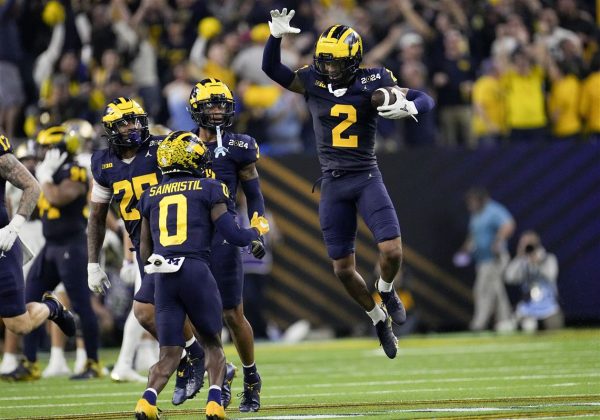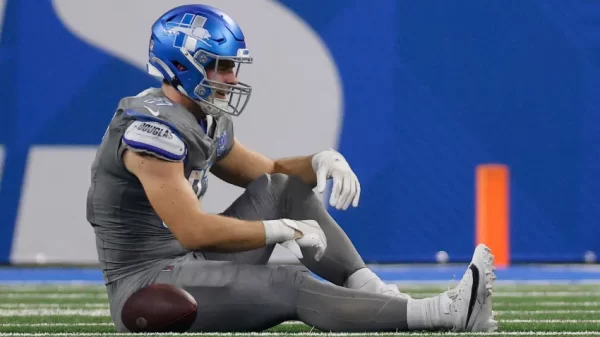Fantasy Football gets sports fans hooked
Football fans can play the fantasy version on many platforms, including on their cell phones.
Fantasy Football participation has steadily increased at an annual rate of about 10 percent since 2001. In the past 3 years, that rate has spiked to about 15-20 percent. The spike is due to teenagers that have fueled the explosion of fantasy leagues that bring in a net profit of over a billion dollars annually.
“Pretty much all my friends are either in my league or play in a different one,” said senior Jack Addy.
The rise in high school and middle school age fantasy players has raised a debate over the gambling aspect of Fantasy Football. Most fantasy leagues feature some kind of cash prize for the winner. At the beginning of the season there is typically a “buy-in” to be a part of the league. At the end of the season the leagues winner takes all the money.
“I don’t have a problem with kids playing fantasy football as long as it stays out of school, but gambling is designed for the gambler to lose,” said Principal Kevin Cumming.
Traditional fantasy football is considered by the federal government to not be a game of chance, making it legal for all ages at the federal level. The Unlawful Internet Gambling and Enforcement Act of 2006 has a specific section declaring fantasy sports legal to gamble on. Knowledge of the players and league make players much more likely to be successful by rearranging their rosters and selecting skilled players in the draft.
“It’s not like you’re betting a lot of money or anything. It just makes it more interesting,” said junior Jack Ronan.
Fantasy Football gives players a reason to care about games other than the ones their favorite teams are playing in. It also gives players an opportunity to feel like a coach and make decisions that affect how their team plays as well as decides who gets bragging rights for the week. Although there are many reasons fantasy football is popular, the most crucial reason is that there is money at stake. The element of gambling is what makes fantasy football so exciting and interesting. Without the gambling aspect, there would be far less motivation to give effort and it would lose popularity.
“It would be kind of pointless to play without betting,” said senior Matt Sokol.






